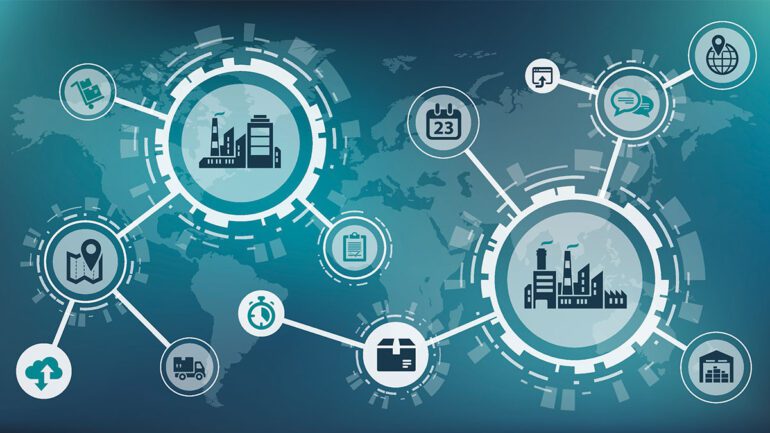TL;DR:
- Major corporations like Unilever, Siemens, and Maersk are utilizing artificial intelligence (AI) to optimize complex supply chains.
- Generative AI technology is revolutionizing supply chain management by automating tasks such as contract negotiation and supplier identification.
- Geopolitical tensions and environmental concerns are driving the adoption of AI to ensure ethical and efficient supply chain practices.
- Companies like Pactum and Scoutbee offer AI-powered solutions that aid negotiations and identify alternative suppliers.
- The Covid-19 pandemic and geopolitical disruptions have underscored the need for rapid supplier engagement and informed decision-making.
- New supply chain regulations, particularly in Germany, are propelling interest and investment in AI-driven supply chain solutions.
- Despite the potential benefits, concerns about job security due to AI integration persist among supply chain professionals.
Main AI News:
In the ever-evolving landscape of global business, major corporations are embracing the potential of artificial intelligence to streamline intricate supply chains. As they grapple with the repercussions of geopolitical tensions and mounting pressures to address environmental and human rights concerns, companies such as Unilever, Siemens, and Maersk are capitalizing on AI-powered solutions to navigate the complexities of their supply networks.
Incorporating AI into supply chain management is not a new concept, but the emergence of generative AI technology has opened up new vistas for even more refined automation. This technology has proven instrumental for these conglomerates in negotiating contracts, identifying new suppliers, and uncovering links to issues ranging from alleged repression to environmental misconduct. Against the backdrop of disruptions brought about by the Covid-19 pandemic and escalating geopolitical frictions, the imperative to stay well-informed about suppliers and customers has heightened significantly.
One notable catalyst for this shift has been the introduction of supply chain regulations in various countries. For instance, Germany now mandates that businesses closely monitor environmental and human rights compliance across their supply chains. This legal impetus has catalyzed profound interest and investment in the intersection of AI and supply chain management.
Navneet Kapoor, the Chief Technology Officer at Maersk, affirms the transformative power of generative AI, noting its capability in developing chatbots and software that can generate responses to human inquiries. In an instance showcasing the tangible impact of this technology, the second-largest container shipping group globally joined hands with Pactum, a San Francisco-based enterprise. Through its ChatGPT-like bot, Pactum facilitated negotiations of contracts with suppliers for Maersk, Walmart, and distribution heavyweight Wesco. This technology-driven approach assumes paramount importance in times of adversity, such as wars, pandemics, or supply chain disruptions, where the need to engage with suppliers swiftly is paramount.
Siemens, a pioneering German industrial conglomerate, is emblematic of businesses strategically recalibrating their dependence on Chinese suppliers. Since 2019, Siemens has collaborated with Scoutbee, a Berlin startup that recently unveiled a chatbot. This chatbot, designed to identify alternative suppliers or vulnerabilities within a user’s supply chain, has garnered attention for its pivotal role in the company’s supply chain endeavors. Addressing the geopolitical dimension, Michael Klinger, a supply chain executive at Siemens, highlights its significance in the company’s operations.
The sentiment of embracing AI as a transformative solution resonates across industries. For instance, Unilever, a renowned consumer goods manufacturer, leveraged Scoutbee’s technology to source new suppliers during China’s lockdown due to the pandemic. Altana, a New York startup, has harnessed AI to construct an intricate map linking 500 million global companies. By analyzing customs declarations, shipping records, and diverse datasets, Altana’s AI-driven platform empowers customers to trace products’ origins and even monitor their integration into sensitive systems like Russian weaponry.
The potential of AI in the supply chain arena is far from untapped. A recent survey conducted by logistics group Freightos found that up to 96 percent of supply chain professionals intend to integrate AI technology into their operations, though a mere 14 percent had already implemented such systems. Despite the palpable benefits, apprehensions about job security remain prevalent, with nearly a third of respondents expressing concerns over the technology’s impact on employment.
Conclusion:
The integration of generative AI technology into supply chain management reflects a transformative shift in the industry. This trend signifies a move towards more efficient, agile, and ethically conscious supply chain operations. As companies strive to navigate complex challenges, AI’s role in optimizing supply chains is poised to reshape the market landscape.

